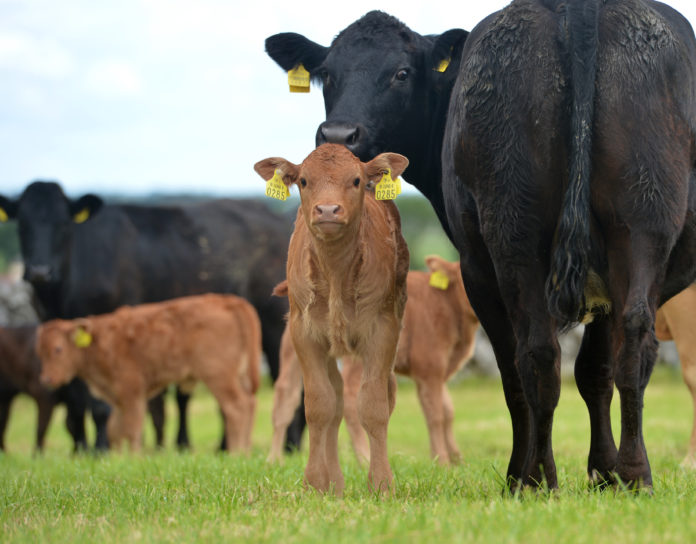Emily Harrinson outlines why livestock are important for producing food to feed the world.
Agriculture is a science as old as man. It would be harder to find sufficient food, clothing, and shelter for survival without agricultural science.
Animal agriculture has been maintained over time because it provides desirable and nutritious food forms for human consumption.
Most of the energy ruminants and non-ruminants consume comes from waste materials that humans cannot consume directly to feed the population.
Only 11% of the earth’s land area is suitable to produce food consumable by humans.
World food production cannot adequately provide an adequate balanced diet for the world’s population, so using livestock to feed the world is crucial.
Protein supply is scarce and particularly costly within developing nations, and the world’s major health problem is malnutrition.
As of 2009, the UN’s Economic and Social Council indicates that an estimated 1.02 billion people are malnourished, while about 36 million people die of hunger every year.
With the world’s population continuing to rise, the problem of malnutrition and food shortage will only get bigger.
It is not enough to provide people with food that meets their calorie intake. The body requires adequate protein to function correctly.
Livestock
Protein is crucial for maturation, growth, lactation, pregnancy, and recovery from sickness and disease.
Also, it is established that animal proteins are nutritionally superior to plant proteins in humans. This superiority is because animal products have balanced amino acids.
So having animals and animal products to feed on is crucial for humans.
Although I must say that food availability has also increased in the last 30 years as the human population continues to grow, there are still too many humans suffering from malnutrition.
The problem is not solely due to insufficient food production or inadequate food distribution.
It also results from the inability of poor people to financially purchase good quality foods in adequate quantities to meet their needs.
For many developing countries, livestock production is still an essential part of the country’s agricultural economy.
And it contributes more than just direct food production and includes multipurpose uses like:
- Fiber;
- Skins;
- Fuel;
- Fertiliser;
- Cagricultureapital accumulation.
Moreover, livestock is also linked closely to the cultural and social lives of millions of farmers whose animal ownership ensures their economic stability and sustainable farming to a varying degree.
Importance of livestock rearing and animal products
Livestock has a crucial role to play in feeding the world. While they are often overlooked, animal products such as eggs, milk, meat, seafood, etc., play crucial roles in the battle for food security.
Some of their importance and the essential roles that they play are discussed further in this article.
Firstly, animal products are a vital source of balance, highly bioavailable and high-quality protein, and several other critical micronutrients such as zinc, iron, vitamins A and B-12.
Unfortunately, many of these nutrients are primarily deficient in most of the world’s population.
So moderately consuming animal-sourced food is crucial to achieving a nutritionally balanced diet, especially for developing countries.
High-quality goods
Secondly, livestock is considered high-quality foods. Therefore, there will be a drastic increase in the global demand for animal and animal products.
This increase in demand for animals and animal products is driven not only by the population growth alone but by the increased affluence, especially in developing countries where they are likely to experience most of the world’s population increase.
Sustainable agricultural system
Thirdly, farm animals are essential to creating a sustainable agricultural system, especially for smallholders that make up most of the farmers in the world.
The contribution of farm animals is mainly as the source of high-quality foods for improving nutritional status. However, that’s not all. They also provide additional resources like on-farm power, manure for fertiliser, and several other by-products.
Additionally, they also provide risk distribution and economic diversification.
Also, improved efficiencies within the last few decades through improved management technologies and genetic selection have helped to save significant amounts of resources, including land and water, and has also led to a substantial reduction in carbon footprint from animal production.
Fourthly, ruminants such as sheep, goats, cattle, and buffalo, efficiently convert the grassland forages into high-quality animal products.
Also, when managed appropriately, grazing can improve the biodiversity and health of grasslands.
This is essential as grassland pastures take up more than 25% of the planet’s land surface and comprise mainly of non-arable or marginally arable lands, despite housing almost a billion people.
GHG emissions
However, I must mention that sustainable livestock production also requires a far better understanding of how it impacts the environment.
For instance, the United Nations FAO report stated that livestock, especially ruminant animals, contributes a massive 18% of greenhouse gas emissions.
However, many people have come out to say the figure is a gross overestimation, and the actual value may not concern only greenhouse gases.
It may also include the impact of livestock on biodiversity, water, and soil.
Conclusion
There are several obstacles to overcome to solve food security problems, reduce world hunger and malnutrition to a very good extent.
Ensuring sustainable food security may be daunting. However, it is extremely important due to the role that food security plays to national security, but beyond this, for global stability.
Yet, the world’s population continues to grow rapidly. This is especially the case in developing countries with less access to high-quality, nutritious food and a balanced diet.
To solve this problem and ensure enough high-quality food to go around, livestock animals and animal products will play an important role.
Malnutrition, hunger, and food scarcity are some of the significant problems people face worldwide. Livestock will play a crucial role in tackling these problems.
Author bio
Emily Harrinson is one of the most influential editors at UK Best Essays in London. She has been working in this company since 2006 as a pro essay writer.
Other articles:





